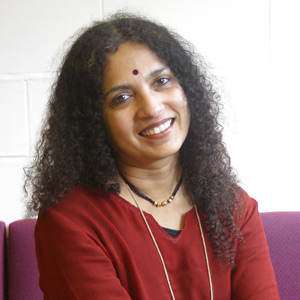IMC seminar on Play, humour and culture
Talks by Vasu Reddy, University of Portsmouth and Ning de Coninck-Smith, Danish School of Education
Info about event
Time
Location
IMC Meeting Room, Jens Chr. Skous Vej 4, Building 1483-312
Organizer


This IMC tuesday talks sprang off the new IMC project PLAYTrack (see also http://interactingminds.au.dk/projects/playtrack/) dedicated to building an international platform to investigate play and its role in society. The two invited speakers talk about this from the perspectives of a developmental psychologist and a historician of childhood!
Playfulness, humour and culture
Using data from interpersonal playfulness and the creation of funniness in infancy, I try to understand the nature of humour of playfulness and humour. Both are notoriously difficult concepts - perhaps concepts we should not try to capture. But both are not only fundamentally cultural in their manifestations, their inherent violence to the scripted is also the crux of the process of culture.
Contact:
Professor Vasudevi Reddy
Centre for Situated Action and Communication, Department of Psychology, University of Portsmouth
When play became everybody’s business
This is a project in its very early upstart – and it is mostly a range of thoughts and ideas, that I am trying to connect. It’s based on a chapter in my 2011 book on Childhood and architecture and has as its starting point the creation of the world’s first adventure playground in Copenhagen in 1943. In 1948 OMEP, [The International Organization for Early Childhood Education] was founded and supported by UNESCO. The Swedish educator Alva Myrdal was elected as it first president. In 1954 the conference was held in Copenhagen, where another known educator Erik Sigsgaard was a key-organizer. He was also the link to the creation of the Danish playground society from 1959. The society promoted – and promotes - children’s right to play and especially the idea of adventure playgrounds.
But why did play gain this importance? And what is the connection to the invention of the Lego-brick? In much current research on the Lego story (see eg. Konzack, 2014) this connection is never made, the design story seem to overshadow the social and cultural/historical context. So my project is to challenge this understanding, through asking the question of why play became (everybody’s) business?
Contact:
Professor Ning de Coninck-Smith, Danish School of Education, Aarhus University
